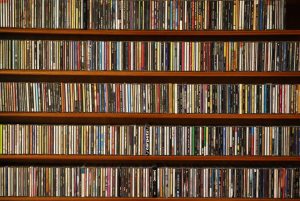Music Library Tips #2: Build the right sized music library
 There is a balance to this.
There is a balance to this.
A smaller library means that your listener will get to hear each song more often. This is good if you want to build the listener’s familiarity with the music, or if you have a station that plays current hit songs. However, there is also the possibility that the listener may tire of the songs more quickly (see tomorrow’s post), more likely with older target audiences.
A large library suits a music genre with a larger back catalogue. One example is classic hits, where every song is a memory. Another example could be a particular music genre like jazz or reggae, where there is a huge heritage of great music. In the latter instance, not every song has to be well-known, but you will need core artists (see next Monday’s tip).
If you are playing music genres where the average track is much longer (trance, progressive rock), this may change things a little, as the turnover of your music library will be slower.
Having said all of the above, if you are building a music library, a good target to aim for to start with is between 600 and 1000 tracks.
Tomorrow, we will look at how the music library is a living organism.
Happy broadcasting!
: Blogs